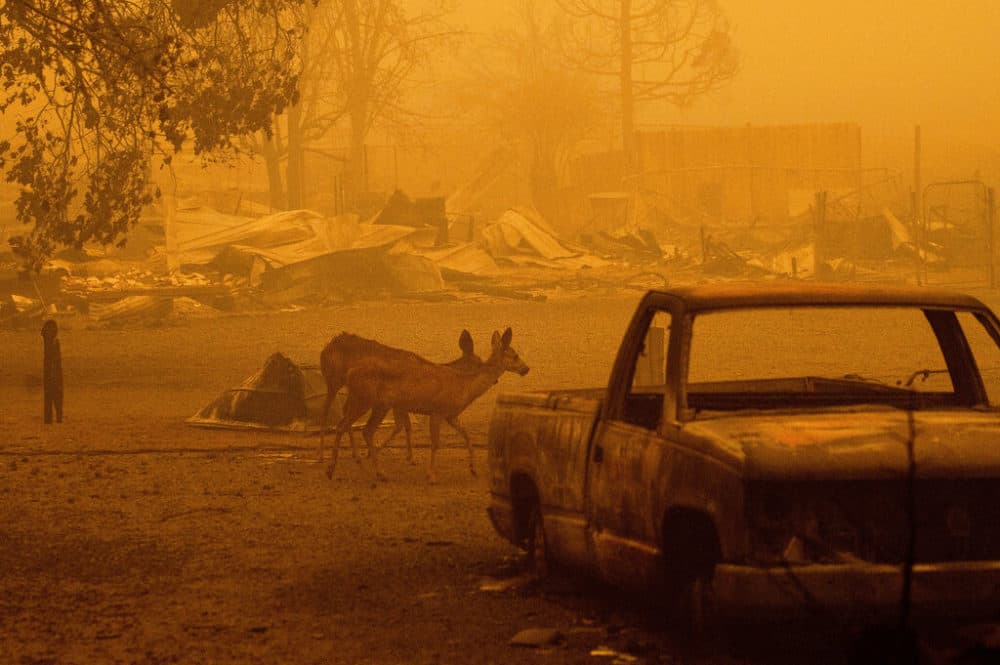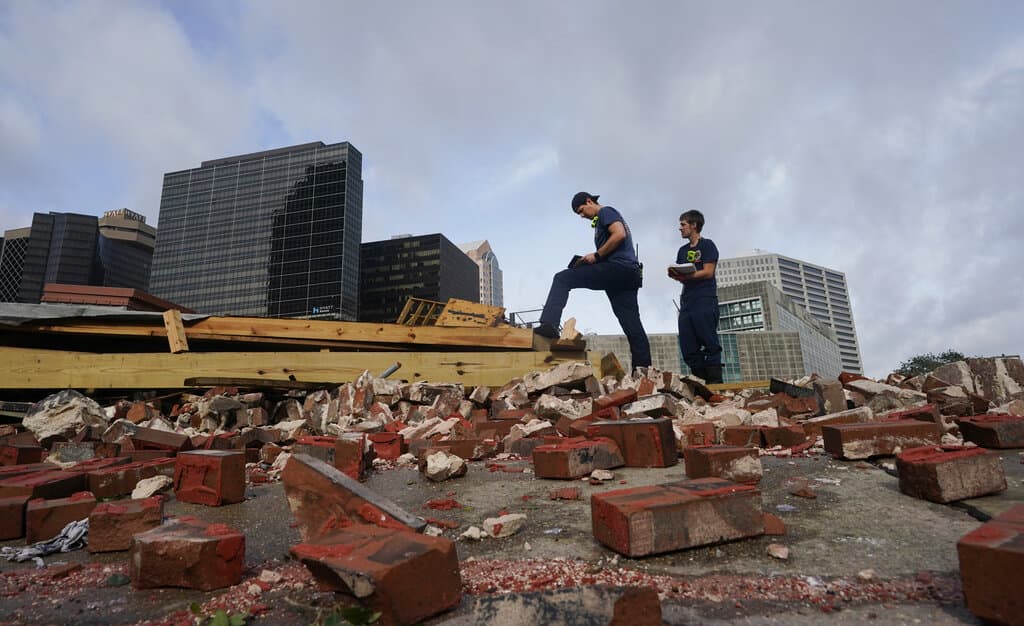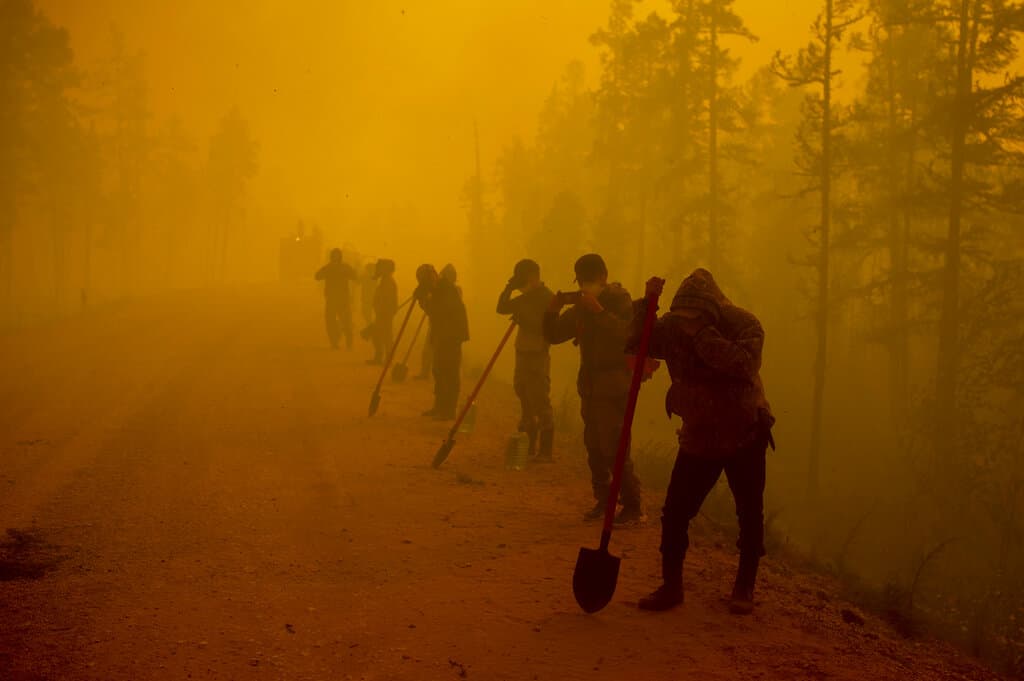Advertisement
Commentary
What To Do About Our Wounded Earth

In the summer of 2021, Earth showed us her wounds.
During the four decades after scientists began warning of climate change, the effects of the warming atmosphere were often subtle, uncertain or remote. Not anymore.
This summer brought a steady drumbeat of news about heat waves, droughts, wildfires and floods. Climate change was in-your-face, up close and personal, 24/7.
For starters, it was aberrantly hot. A stalled heat dome over the normally temperate Pacific Northwest caused hundreds of deaths from unprecedented high temperatures. Broad swaths of the Midwest baked in long spells of oppressive weather. The Northeast had a pair of early heat waves in June, and Boston’s summer is on track to be one of its warmest on record.
The swelter was not limited to the United States. Across southern Europe, in France, Spain, Italy, eastward into Romania, Hungary, Greece and Ukraine, the mercury rose to life-threatening levels. In Tunisia, a new high temperature of 120 degrees Fahrenheit was recorded.
In this climate-changed world, heat goes hand-in-hand with drought. The megadrought in the western US drained reservoirs to historic lows, causing the federal government to declare a water shortage on the Colorado River for the first time. The southwestern drought expanded to the north and east across the Dakotas and into Minnesota.

Drought means hunger in developing nations. In Syria, Kazakhstan and Afghanistan, crops failed, and livestock died from lack of water. A drought-induced famine in Madagascar forced people to rely on insects for food.
And with drought came wildfires. Deadly fires swept through California, Idaho, Washington, Oregon and Montana, and the smoke from them veiled the July sun in New England. In Canada, there were major fires in British Columbia, the Yukon, Manitoba and Ontario. Many of these fires still burn into late August.
Record-breaking wildfires also ripped through Greece, Spain, Italy, Turkey and Algeria this summer. In the south of France, winemakers anticipated a historically bad harvest after vineyards were scorched by the most extensive wildfires in decades.
As bad as those fires were, they were small compared to Siberia’s wildfires, which the Washington Post reported to be larger than the rest of the world’s fires combined. Satellites detected smoke from these blazes at the North Pole.
Advertisement

In other places, climate disasters came in the form of water. The Greenland ice sheet continued to melt at an alarming rate this summer, and sea levels continued to rise. The situation in South Florida is particularly acute, and Louisiana is losing an acre of land to erosion every 100 minutes.
There were approximately 200 deaths in Germany due to severe flooding in July. In Sichuan, tens of thousands of people had to be evacuated from flood zones when an abnormally heavy rainy season hit the province. And reports from the north of India said hundreds died when monsoon rains triggered flash floods and mudslides.
In Massachusetts, it was the wettest July on the books. Flooding in North Carolina in the wake of a tropical storm caused over $300 million in damages. And in Tennessee, a freakish and devastating flash flood killed 22, including twin babies tragically swept from the grasp of their father as the waters rose.
Hurricane Ida, one of the most powerful storms ever to hit the U.S., added an exclamation point to a summer of catastrophic weather.
Amid the torrent of news about climate calamities, the United Nations Intergovernmental Panel on Climate Change issued a new scientific report saying that much of the harm humanity has done to the climate is irreversible in the near future.
In other words, this planet is damaged goods.
The summer of 2021 revealed the range of ecological malignancies that 150 years of industrial civilization have wrought. And with that revelation comes a sense of permanent loss, a feeling that nature has become malevolent, and the awareness that we no longer live in the world we once knew.
But the U.N. report makes clear that defeatism is unwarranted, and there remains an obligation to minimize future repercussions of climate change. The technological pathways to the decarbonization of the global economy are reasonably well understood. Nations now need to navigate a narrow course that balances adaptation to what is inevitable with avoidance of the worst-case scenarios.
What stands in the way of meaningful mitigation of climate disruption is the intransigence of powerful people who act in benighted self-interest. That includes the fossil-fuel multinationals, the autocratic petrostates, the industrial agriculture conglomerates and the blinkered politicians who can’t see beyond the next election cycle. They are all answerable for impeding the rapid reform that is so clearly necessary.
After what we saw this summer, there can be no further equivocating, no greenwashing, no phony debates. Earth has made evident the violence we’ve inflicted on her. We owe future generations an effort to repair the damage as best we can.
